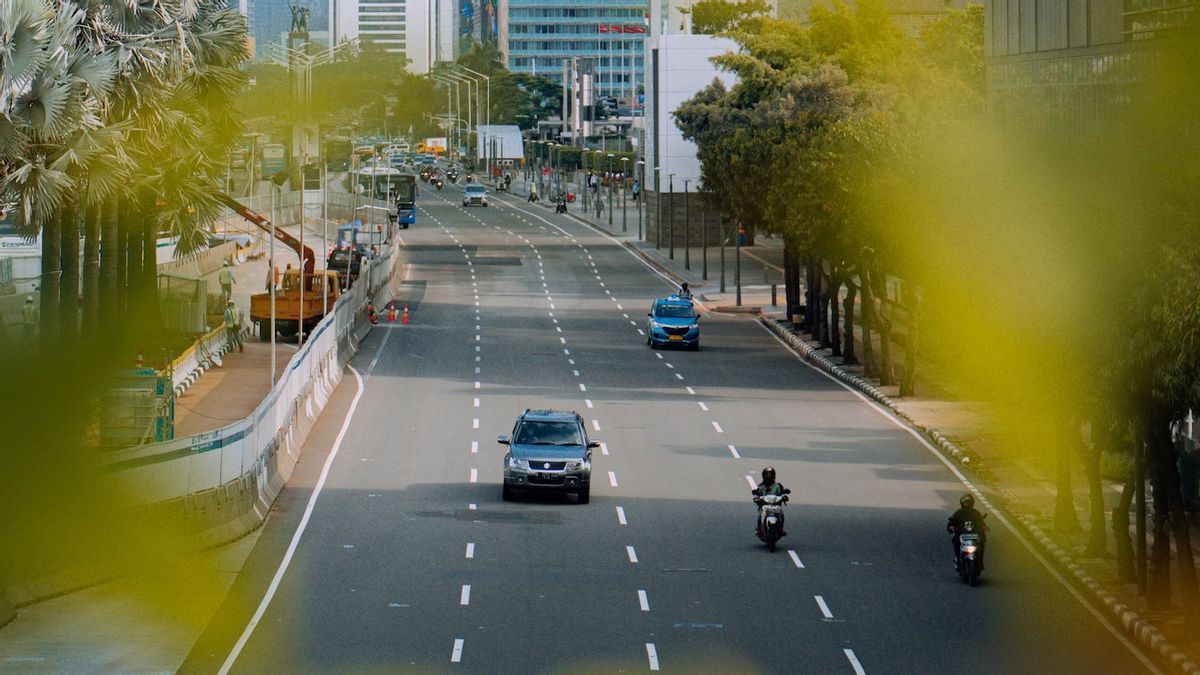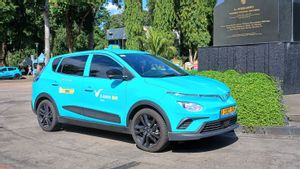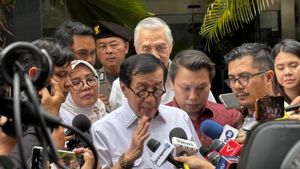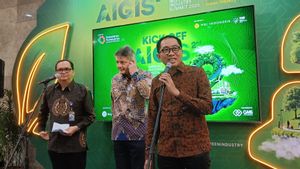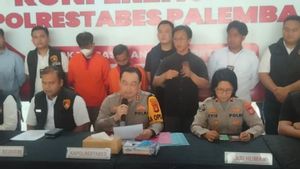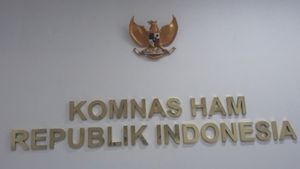JAKARTA - Acting (Pj) DKI Jakarta Governor Heru Budi Hartono will not implement a paid road or electronic road pricing (ERP) system in the near future.
The DKI Provincial Government will first optimize public transportation services. For example, increasing Transjakarta's operations by shortening the distance between buses (headway) so that more passengers can be accommodated and reduce the volume of queues.
"The DKI Regional Government must also tidy up, prepare Transjakarta. For example, it can serve well, the headway is tightened, and so on," Heru said when met in Ragunan, South Jakarta, Friday, January 13.
Haru said, the improvement of transportation services was carried out in line with the implementation of several planning stages before the ERP was implemented.
The DKI Provincial Government and the DKI DPRD are still discussing the draft Regional Regulation (Raperda) on Electronic Traffic Control (PL2SE) which has been prepared article by article, based on a study from experts.
After the Raperda is issued as a regional regulation, Heru will still issue derivative regulations in the form of a governor's regulation or a governor's decision to regulate the technical implementation of paid roads, before the system is finally implemented.
"It takes time while walking. On the other hand, the ERP rules that are discussed are still a long time. If they don't start, when will they start?" explained Heru.
For information, a draft regional regulation (RAPERda) on electronic traffic control that regulates paid roads has been prepared. The Provincial Government and the DKI DPRD have also conducted initial discussions regarding the contents in the draft regulation, but the discussion of articles per article has not been carried out.
Seen in the draft Raperda, there are 25 roads that will be subject to the implementation of ERP, namely Jalan Pintu Besar Selatan, Jalan Gajah Mada, Jalan Hayam Wuruk, Jalan Majapahit, Jalan Medan Merdeka Barat, Jalan MH Thamrin; Jalan Jenderal Sudirman, Jalan Sisingamangaraja, Jalan Panglima Polim, Jalan Fatmawati (Simpang Jalan Ketimun 1-Simpang Jalan TB Simatupang).
Then, Jalan Suryopranoto, Jalan Balikpapan, Jalan Kyai Caringin, Jalan Tomang Raya, Jalan Jenderal S Parman (Jalan Tomang Raya-Simpang Jalan Gatot Subroto), Jalan Gatot Subroto, Jalan MT Haryono, Jalan DI Panjaitan, Jalan Jenderal A Yani (East Bekasi Raya Intersection-Perintis Kemerdekaan Intersection), Jalan Pramuka, Jalan Salemba Raya, Jalan Kramat Raya, Jalan Pasar Senen, Jalan Gunung Sahari; and, Jalan HR Rasuna Said.
Then, electronic traffic control in traffic control areas applies electronically every day from 05.00 WIB-22.00 WIB.
The vehicles charged with ERP rates are road users who use motorized vehicles and electric vehicles. There are a number of vehicles that are excluded in the application of paid road systems, including electric bicycles, yellow plate public motorized vehicles, government agency and TNI/Polri operational service vehicles except/in addition to black plates, foreign diplomatic corps vehicles, ambulance vehicles, corpse vehicles, and fire fighting vehicles.
The amount of tariff for traffic control services electronically and its adjustment is determined by the Governor's Regulation after obtaining approval from the DKI Jakarta DPRD. Meanwhile, the DKI Transportation Agency proposes that ERP be subject to a tariff of IDR 5,000 to IDR 19,000.
The English, Chinese, Japanese, Arabic, and French versions are automatically generated by the AI. So there may still be inaccuracies in translating, please always see Indonesian as our main language. (system supported by DigitalSiber.id)
